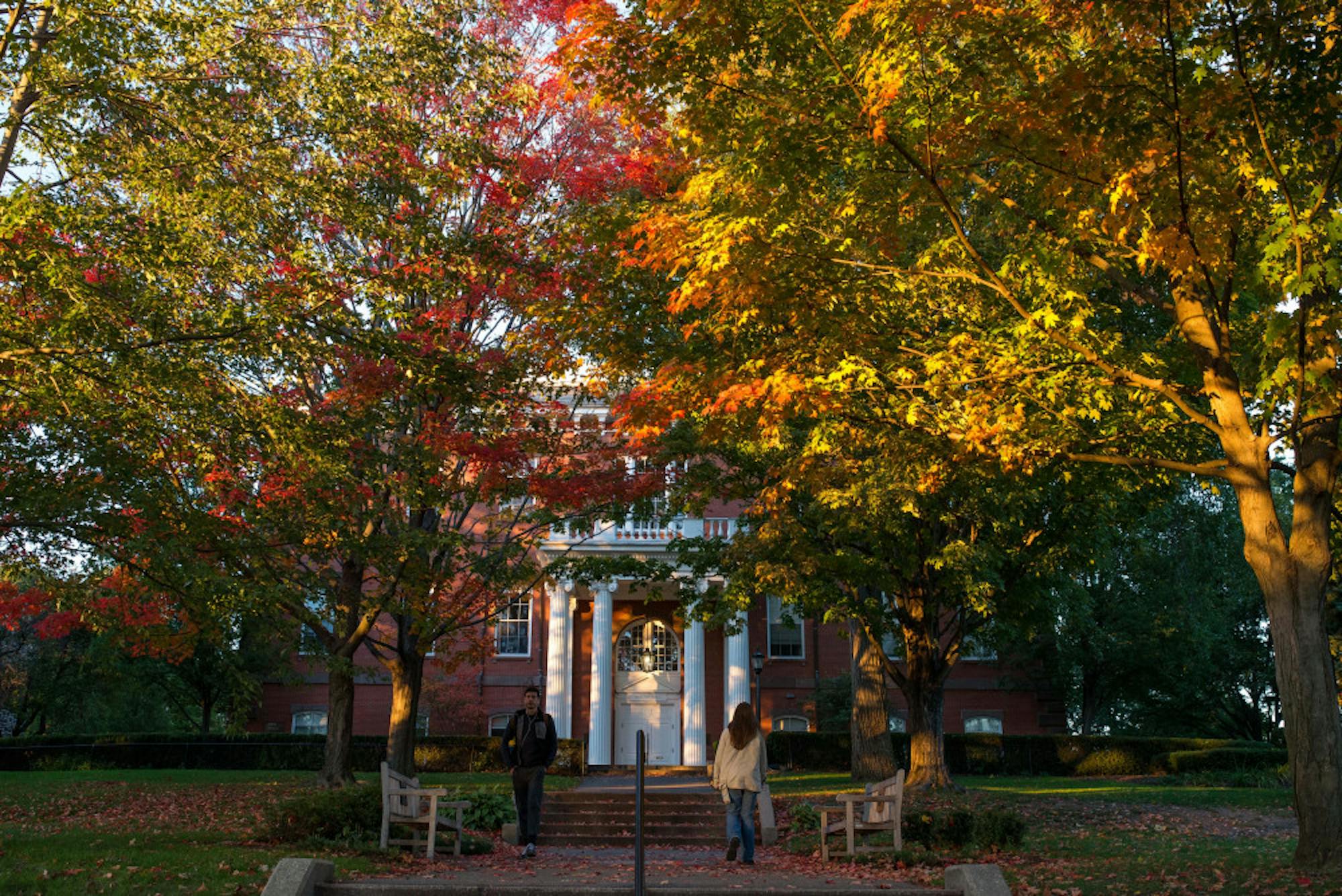Tufts University has waived the eight-semester academic residency requirement for all students enrolled full time in fall 2020, due to the unique circumstances caused by COVID-19.
Students must now complete six full-time semesters and have the option of attending part time or graduating early if they meet all degree requirements, according to the Student Life website.
The waiver still gives students the opportunity to spend two of the six full-time semesters at approved institutions or study abroad programs, according to the website.
Carmen Lowe, dean of undergraduate studies, explained that the waiver is one of many policy changes that faculty from the School of Arts and Sciences and the School of Engineering approved in an effort to support students during the pandemic.
Despite the policy change, however, the opportunity to graduate in six semesters or enroll part time is not feasible for all undergraduates, according to Lowe.
“For some of the engineering majors ... they have to have [a] heavier course load and their courses are very sequential, so it’s extraordinarily difficult for engineering students to graduate in fewer than eight full-time semesters," Lowe said.
She also noted that many majors in the School of Arts and Sciences and the School of Engineeringinclude a senior capstone component as a degree requirement, making it more difficult for students with these majors to graduate in earlier than eight semesters.
Lowe emphasized that the policy change was made considering only the special circumstances of this semester.
"I cannot predict anything beyond the semester ... the focus of the faculty ... was simply only for this semester, only for students who enroll in this semester," Lowe said.
The release of the policy waiver has led students to rethink their final semesters at the university.
Maria Nolan, a senior majoring in international relations with an economics minor, explained that sheoriginally considered taking the fall semester off to pursue an internship.
She decided to enroll full time in the fall and continue part time in the spring, due to financial reasons and the residency requirement changes.
“[Enrolling part-time] would be a much lower amount of money than I am spending now for my parents and for my financial benefit and being more secure when I start out in a job later on," Nolan said. "Especially with COVID, it’s going to be harder for us to find jobs out of college."
Senior Jordan Isaacsexpressed the benefit the waiver gives to students who are able to complete their degree requirements in less than eight full-time semesters.
“It’s a great opportunity for kids in my position who have one or two classes left who don’t have to worry and can get a job while they finish up school,” Isaacs said.
Compared to full-time enrollment tuition of $29,780, part-time tuition is $2,482 per semester-hour unit, according to Patricia Reilly, associate dean of financial aid.
“Financial aid is always based on the student costs," Reilly wrote in an email to the Daily. "So, if a student is enrolled on a part-time basis, their costs will be less and their financial aid will be reduced to take into account the reduced costs.”
Reilly explained how the waiver can reduce debt for students on financial aid.
“In most cases, the student loan will be reduced first," Reilly said. "As a result, financial aid students will typically not pay less to enroll part time, but they will likely graduate with lower student loan indebtedness.”
Some students are excluded from this waiver, including transfer students who need to complete at least four full-time semesters, and students in the Resumed Education for Adult Learners Program, to whom the residency requirement does not apply, according to the website.
Students who have Reduced Course-Load Accommodation are considered full-time students, according to the website. Those who may need to take a medical leave of absence in the fall will still have their semester counted toward the residency requirement, if their official leave date passes the tuition reimbursement period.
Lowe hopes this policy will prevent students from feeling discouraged to take a medical leave if they need to.
"What if someone is sick ... we want them to take a medical leave, we don't want to discourage that in any way," Lowe said.
She also cautioned against an extraordinarily heavy course load because of its potentially detrimental effects on students.
“[A heavy course load is] not good for [students] intellectually, it's not good for people's mental health, it's not good for their physical health," Lowe said.
She encouraged students to do eight full-time semesters.
“Students need four full-time years of college, especially eight full-time semesters, in order to master the curriculum and have both the breadth and the depth of the curriculum, as well as the experience of leadership opportunities," Lowe said.






